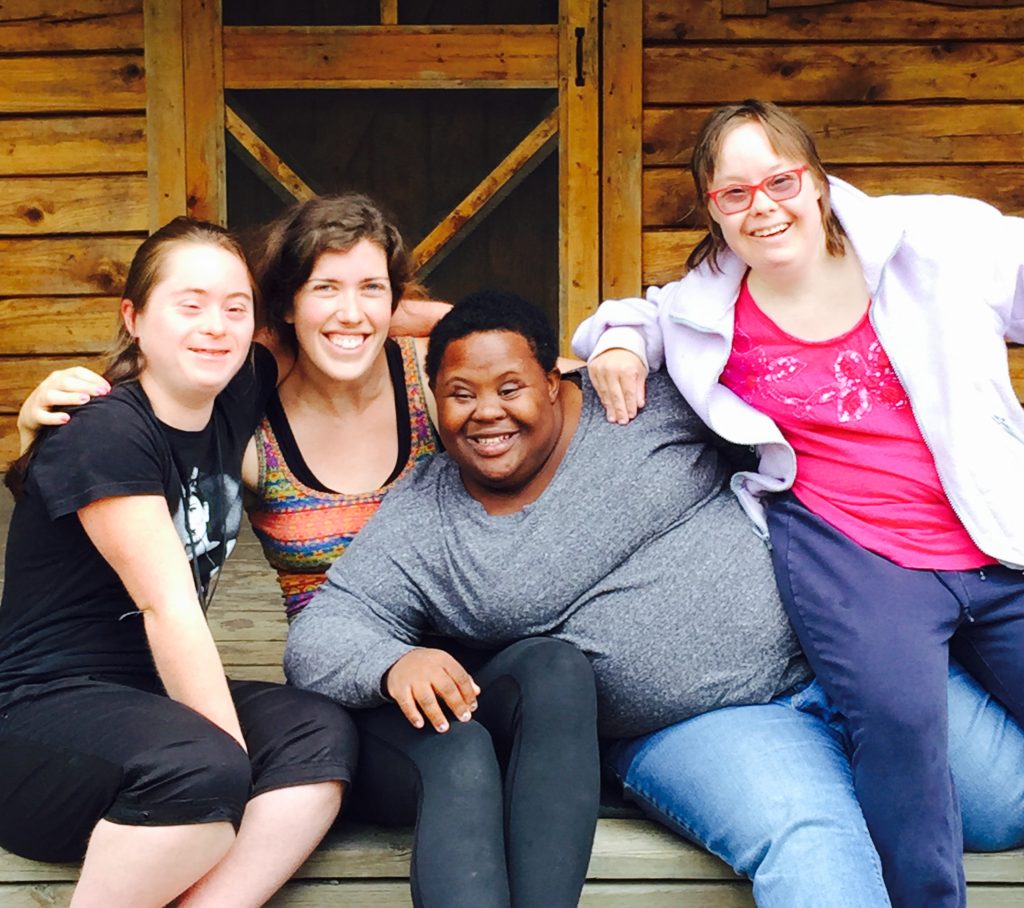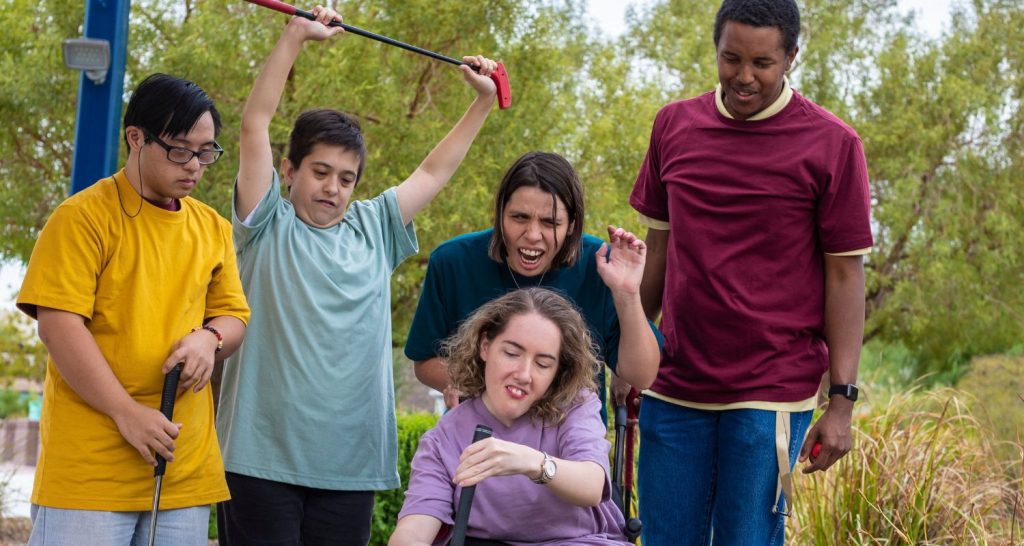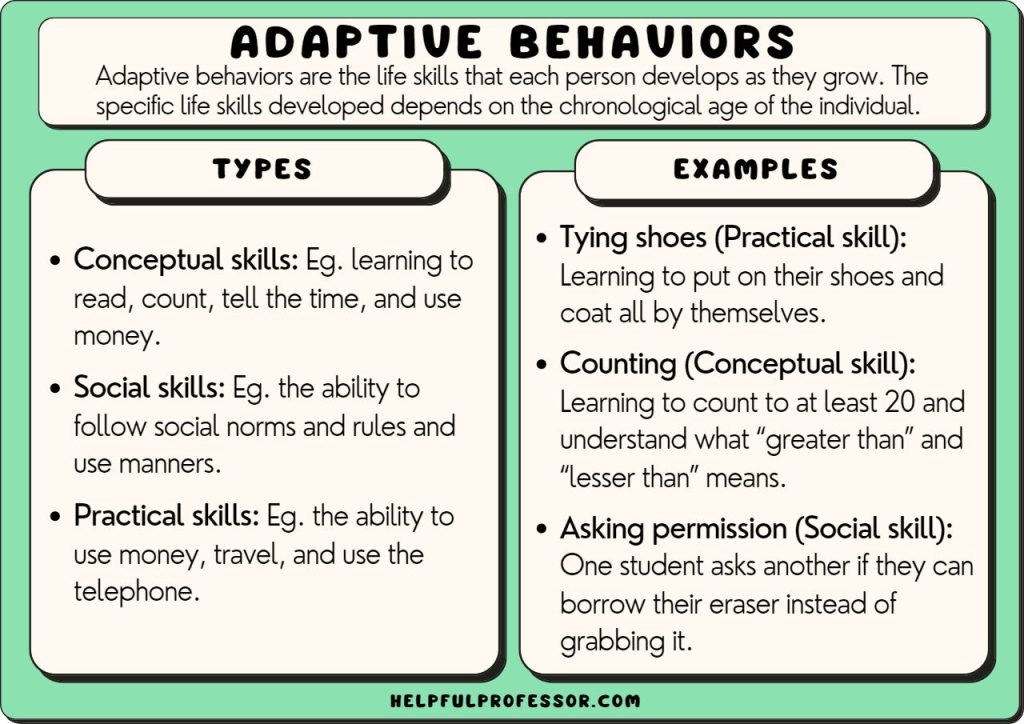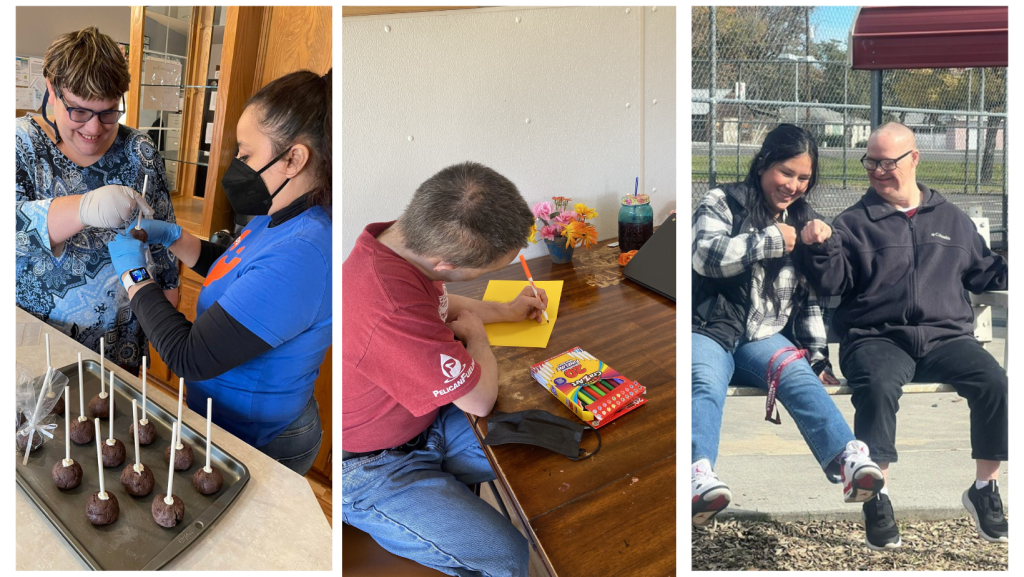
“Adaptive behavior is a critical set of skills that are learned and performed throughout our lives and allow us to meet societal expectations for individuals of our age group. These behaviors are an essential component of everyday functioning, and deficits in adaptive behavior are associated with to several neurodevelopmental disorders, including intellectual functioning.” [1]
“Individuals with an intellectual disability have neurodevelopmental deficits characterized by limitations in intellectual functioning and adaptive behavior. These disabilities originate at birth and manifest before the age of 18 and can be associated with a considerable number of related and co-occurring problems, including mental health (e.g., depression and anxiety), neurodevelopmental (e.g., autism spectrum disorders, and attention deficit hyperactivity disorder), as well as neurological (e.g., infantile cerebral palsy) and medical conditions (e.g., meningitis).” [6]

What Domains Do Adaptive Behaviors Typically Involve?
“The primary domains tested in adaptive skills evaluations include:
- conceptual skills (problem-solving, communication, academics, money, time, self-direction, etc.);
- social skills (interpersonal skills, gullibility, naiveté, social problem-solving, etc.); and
- practical skills (self-care, domestic skills, work skills, safety, health care, etc.).
An accurate and comprehensive assessment often leads to better outcomes throughout an individual’s life.” [2]

Why is Adaptive Behavior an Important Concept?
“Adaptive behavior is a different concept than intelligence. Adaptive behaviors are learned behaviors that reflect an individual’s social and practical competence to meet the demands of everyday living.
To meet the demands of their environments, each person must learn a set of skills. As environments change, people must learn new skills in order continue to meet the environmental demands.
Making a phone (or video) call is an example of adaptive behavior that changed over time. The skills needed to make a call today are very different from the skills that were required 20 years ago.” [3]
“When assessing people with disabilities’ capability to live autonomous lives, psychiatrists often measure people’s adaptive functioning using a range of diagnostic tests.” [4]

Specific skills
“Adaptive behavior includes the age-appropriate behaviors necessary for people to live independently and to function safely and appropriately in daily life. Adaptive behaviors include life skills such as grooming, dressing, safety, food handling, working, money management, cleaning, making friends, social skills, and the personal responsibility expected of their age, social group and wealth group. Specifically relevant are community access skills and peer access and retention skills, and behaviors which act as barriers to such access.
These are itemized below.” [5]
Community access skills
- “Bus riding
- Independent walking
- Coin summation
- Ordering food in a restaurant
- Vending machine use
- Eating in public places
- Pedestrian safety
Peer access and retention
- Clothing selection skills
- Appropriate mealtime behaviors
- Toy play skills and playful activities
- Oral hygiene and tooth brushing
- Soccer play “[5]
“Adaptive behaviors are considered to change due to the persons culture and surroundings.” [5]

Standardized Testing
“Problems in adaptive functioning are identified by using standardized tests.
These tests compare an individual’s score with the average score for the general population.
Problems are indicated when a person’s score is below the score of 97.5% of the population. However, some people may score above these levels and still meet the criteria for an intellectual disability.
In 2010, the Social Security Administration proposed changes to way intellectual disabilities would be defined and assessed.
There is now a greater emphasis on adaptive functioning.
These changes affect eligibility for social security disability benefits.
The assessment of adaptive functioning is very important. This is because it identifies the supports needed to help someone optimize their functioning.” [7]

Resources
[1] https://link.springer.com/chapter/10.1007/978-3-319-59066-0_14
[2] https://www.wpspublish.com/blog/enhance-your-adaptive-behavior-evaluations
[3] https://www.aaidd.org/intellectual-disability/definition/adaptive-behavior
[4] https://helpfulprofessor.com/adaptive-behavior-examples/
[5] https://en.wikipedia.org/wiki/Adaptive_behavior
[6] https://pubmed.ncbi.nlm.nih.gov/31613434/
[7] https://www.mentalhelp.net/intellectual-disabilities/adaptive-behavior-life-skills/
